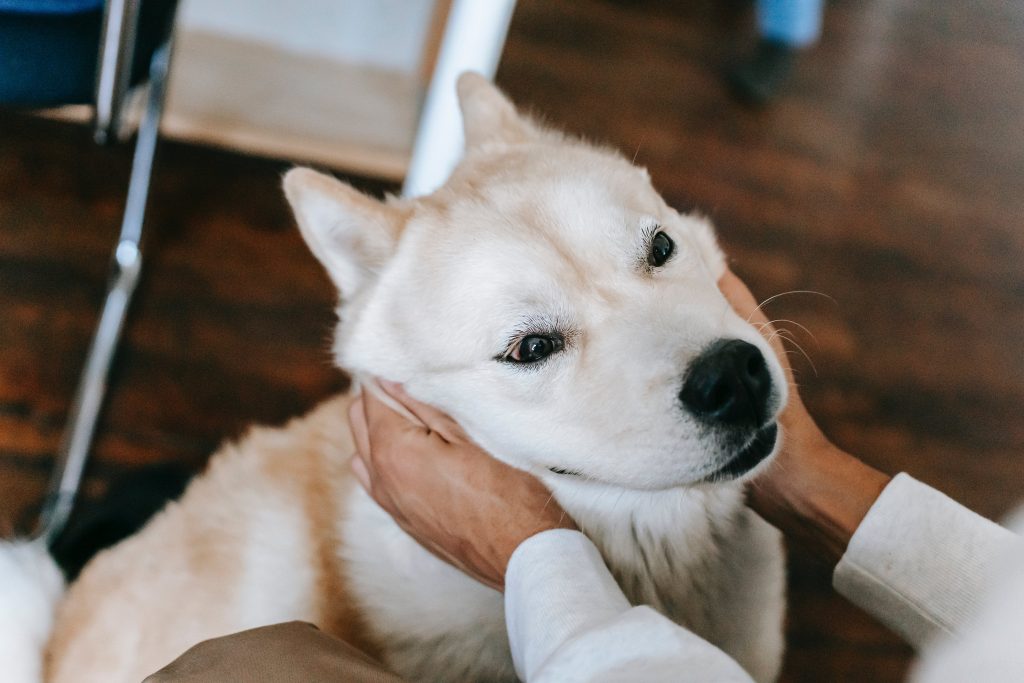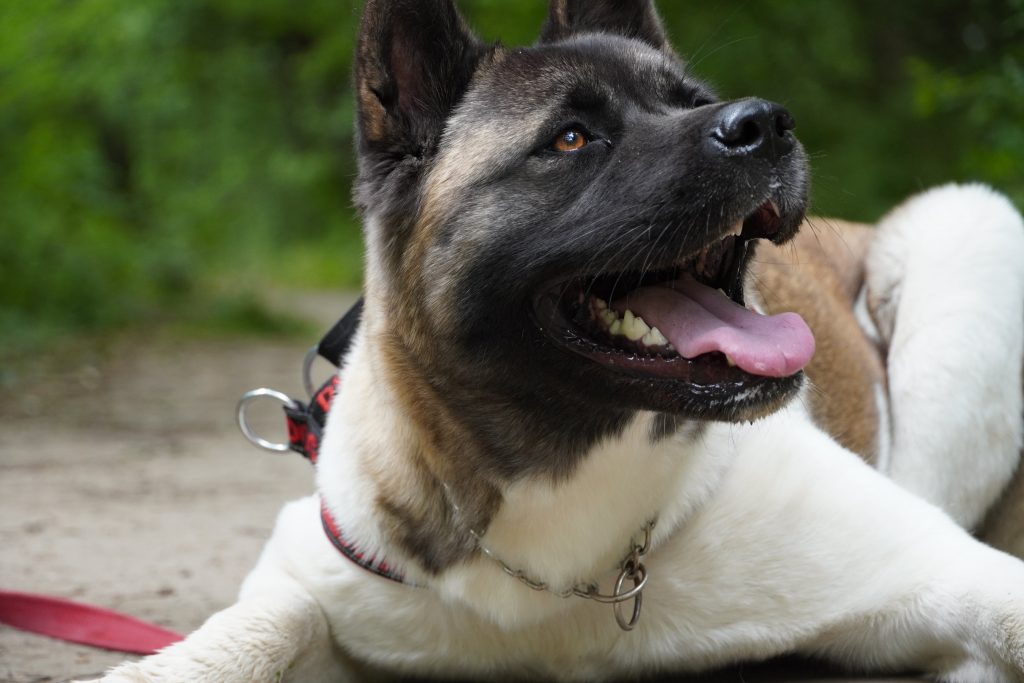If you’re a fan of the solid and loyal Akita breed, you’ve probably wondered about their typical lifespan. It’s important to know that these adorable dogs usually live an average of 10-14 years. How long do akitas live?
In this article, we’ll cover everything from understanding influences on an Akita’s lifespan to providing tips on how you can help extend your dog’s life. Are you ready to dive into some fascinating insights about your fur-baby’s expected duration?

Key Takeaways
- The typical lifespan of an Akita is between 10 to 14 years, similar to other large dog breeds.
- Factors that can affect an Akita’s lifespan include genetics, diet and exercise, living environment, and regular veterinary check-ups.
- To increase your Akita’s lifespan, choose a reputable breeder, schedule regular vet check-ups, provide proper nutrition and exercise, create a suitable living environment, and maintain a healthy lifestyle.
Understanding the Lifespan of Akitas
The average lifespan of Akitas ranges from 10 to 15 years, but there are several factors that can affect their longevity.
What is the average lifespan?
Akitas live about 10 to 14 years on average. But some can live past that age. It is the same as other large dogs. A Japanese Akita lives between 10 and 12 years, and an American Akita can live up to 13 years.
Some may die young because of bad genes or accidents. Not all will reach their expected lifespan.
Factors that can affect lifespan
Several factors can affect the lifespan of an Akita. First, genetics plays a significant role. Some Akitas may inherit certain health conditions that can shorten their lifespan. Additionally, diet and exercise are crucial for maintaining overall health and longevity.
Providing your Akita with a balanced and nutritious diet, along with regular exercise, can help prevent obesity and keep them in good shape. Environmental factors also play a part – living in a clean and safe environment reduces the risk of injuries or exposure to harmful substances that could affect their health.
Finally, regular veterinary check-ups are essential to catch any potential health issues early on and provide proper treatment. By considering these factors, you can help increase your Akita’s chances of living a long and healthy life.

Tips to Increase Your Akita’s Lifespan
Choose a reputable breeder, schedule regular vet check-ups, provide proper nutrition and exercise, create a suitable living environment, and maintain a healthy lifestyle for your Akita.
Choosing a reputable breeder
To ensure your Akita has the best chance at a long and healthy life, it’s vital to choose a reputable breeder. A good breeder will prioritize the health and well-being of their dogs, conducting proper health screenings to prevent genetic issues.
They will also provide a clean and suitable environment for their puppies, ensuring they receive early socialization and basic training. By choosing a responsible breeder, you can increase the chances of welcoming a happy, healthy Akita into your family.
Regular vet check-ups
Regular vet check-ups are crucial for maintaining the health and well-being of your Akita. By scheduling regular visits with a reputable veterinarian, you can ensure that any potential health issues are detected early on and appropriate treatments can be provided.
These check-ups also allow veterinarians to administer necessary vaccinations, perform routine tests, and provide preventive care such as dental cleanings. By prioritizing regular vet check-ups, you are taking proactive steps in keeping your Akita healthy and extending their lifespan.
Proper nutrition and exercise
Proper nutrition and exercise are essential for increasing your Akita’s lifespan. Feed your Akita a balanced diet that includes high-quality dog food and avoids excessive treats or table scraps.
This will provide them with the necessary nutrients to support their overall health and well-being. Make sure to follow the feeding guidelines recommended by your veterinarian based on your Akita’s age, size, and activity level.
Regular exercise is also crucial for keeping your Akita healthy. Akitas are active dogs that require daily physical activity to prevent weight gain and keep their muscles strong. Take them for walks, play fetch, or engage in other forms of moderate exercise that they enjoy.
However, be careful not to overexert them as this can lead to exhaustion or injury.
Providing a suitable living environment
A suitable living environment is important for the overall well-being and lifespan of your Akita. Make sure to provide a spacious and secure area for them to move around freely. Akitas are large dogs that need plenty of exercise, so having a yard or access to regular walks is crucial.
Additionally, keep their living space clean and comfortable, with proper bedding and shelter from extreme weather conditions. Creating a safe environment will help prevent accidents or injuries that could shorten your Akita’s lifespan.
Remember, a happy and stress-free living environment contributes to a longer and healthier life for your furry friend.
Maintaining a healthy lifestyle
To maintain a healthy lifestyle for your Akita, there are a few important things to keep in mind. First, choose a reputable breeder who prioritizes the health and well-being of their dogs.
Regular vet check-ups are also essential to catch any potential health issues early on. Providing proper nutrition and regular exercise will help keep your Akita in good shape. Make sure to create a suitable living environment that meets their needs, including enough space to roam and play.
By taking these steps, you can help ensure that your Akita lives a long and healthy life.

Different Stages of an Akita’s Life
The different stages of an Akita’s life include the puppy stage, young adult stage, mature adult stage, and senior stage.
Puppy stage
During the puppy stage, Akitas are full of energy and curiosity. This is a crucial time for their development, both physically and mentally. It’s important to provide them with plenty of socialization opportunities so they can grow up to be friendly and well-adjusted dogs.
Additionally, proper training should start early on to establish good behavior habits. Be sure to give your Akita puppy regular exercise and mental stimulation to keep them happy and healthy.
Remember, puppies have special dietary needs, so feed them a balanced diet recommended by your veterinarian to support their growth.
Young adult stage
During the young adult stage, which usually occurs between 1 to 3 years old, your Akita will experience significant growth and development. They’ll have plenty of energy and may display more independence.
It’s important during this time to continue providing regular exercise and mental stimulation to keep them engaged and prevent boredom. This stage is also a good time for training and socialization, as they are more receptive to learning new skills.
Keep an eye on their diet to ensure they’re getting proper nutrition for their growing bodies. Regular vet check-ups are crucial during this stage to monitor their health and address any potential issues early on.
Mature adult stage
During the mature adult stage, which typically occurs between 3 to 7 years old for Akitas, they are fully grown and have reached their physical prime. At this age, your Akita will have a stable temperament and be more independent.
They may still exhibit some puppy-like behavior but will generally be calmer and more obedient. It’s important to continue providing regular exercise and mental stimulation to keep them physically fit and mentally sharp.
This is also the time to establish strong leadership with consistent training and socialization. Remember, just like humans, every Akita ages differently, so it’s crucial to monitor their health closely during this stage to ensure they remain happy and healthy throughout their lives.
Senior stage
As Akitas reach their senior stage, they may start to experience age-related issues. This can include reduced energy levels, decreased mobility, and a higher risk of health problems such as arthritis or heart disease.
It’s important to provide them with proper care during this time by giving them a balanced diet, regular exercise tailored to their needs, and maintaining regular veterinary check-ups.
By addressing these needs and providing a loving environment in their senior years, you can help your Akita live a comfortable and fulfilling life for as long as possible.
Common Health Issues for Akitas
Akita Lifespan: How Many Years They Typically Live
5. Common Health Issues for Akitas: Recognize signs and symptoms, manage and prevent health issues, and seek proper treatment to ensure a healthy life for your Akita. Read more to learn how you can keep your furry companion happy and thriving.
Recognizing signs and symptoms
Akitas, like any other dog breed, can experience certain health issues throughout their lives. It’s important for Akita owners to be able to recognize the signs and symptoms of these problems.
Some common health issues in Akitas include hip dysplasia, progressive retinal atrophy (PRA), hypothyroidism, and autoimmune disorders. Signs such as limping or difficulty walking, vision loss or night blindness, weight gain or hair loss, and chronic infections should not be ignored.
If you notice any of these symptoms in your Akita, it’s crucial to seek proper veterinary care as soon as possible. Early detection and treatment can help manage these conditions effectively and improve your Akita’s quality of life.
Managing and preventing health issues
To keep your Akita healthy and prevent health issues, there are a few important steps to follow. Firstly, ensure you provide regular vet check-ups for your dog. This will help catch any potential problems early on.
Secondly, make sure to feed them a balanced diet and give them plenty of exercise to maintain their overall well-being. Additionally, creating a suitable living environment that is clean and safe is crucial for their health.
Lastly, maintaining a healthy lifestyle by providing mental stimulation and social interaction can also contribute to preventing health issues in Akitas. Remember that while these measures can help manage and prevent some common health issues, it’s always best to seek proper treatment from a veterinarian if any concerns arise about your Akita’s health.
Seeking proper treatment.
If your Akita experiences any health issues, it’s important to seek proper treatment. Make sure to take them to a vet who specializes in dog care. They will be able to diagnose the problem and provide appropriate treatment options.
Timely intervention can prevent conditions from worsening and improve your Akita’s quality of life. Keeping up with regular check-ups and following your vet’s advice is crucial in managing and preventing future health problems.
Remember, early detection and proper treatment are key to ensuring that your furry friend stays healthy for as long as possible!

Conclusion
Akitas have an average lifespan of 10-14 years, similar to other large breed dogs. However, it’s important to remember that not every Akita will live to their expected lifespan. By choosing a reputable breeder, providing proper care and nutrition, and being attentive to their health, you can increase the chances of your Akita living a long and healthy life.
Remember to enjoy each moment with your furry companion!
FAQs
1. What is the average Akita lifespan?
The average Akita lifespan is about 10 to 15 years.
2. How long do Akitas typically live?
An Akita can typically live between 10 to 15 years, depending on health issues and care.
3. Is there a difference in lifespan between Japanese and American Akitas?
Usually, both Japanese and American Akitas have similar life expectancy of around 10-15 years, but health problems might affect this.
4. Can an Akita mix have a different life expectancy?
Yes, sometimes an Akita mix may have a slightly different life expectancy since it could inherit traits from another breed.
5. Are there tools like an aging calculator or age chart for Akitas?
Yes, some sites offer tools such as an aging calculator or age chart that can help predict the potential lifespan of your Akita dog.
6. Do certain factors affect the longevity of my Akita’s life?
Indeed! Factors such as diet, exercise quality, regular vet check ups and genetic health issues considerably affect your dog’s lifespan including that of Akitas.


